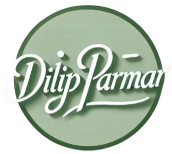Once you’ve gotten comfortable with basic Laravel concepts, there are a few critical skills that can help you become a more confident and capable Laravel developer.
These skills not only make your applications more professional but also prepare you for larger, real-world projects. Here’s a beginner-friendly introduction to each.
1. SOLID Principles and Design Patterns
If you want to write clean, maintainable, and scalable code, you need to understand SOLID principles.
- Single Responsibility: Each class should only do one thing.
- Open/Closed: Classes should be open for extension but closed for modification.
- Liskov Substitution: Subclasses should work in place of parent classes.
- Interface Segregation: Interfaces should only have methods that are relevant to the specific implementing class.
- Dependency Inversion: Classes should depend on abstractions, not concrete implementations.
These principles help you avoid messy, hard-to-maintain code and are essential for professional Laravel development.
Design Patterns (like Repository Pattern or Factory Pattern) give you reusable solutions for common problems, improving how you structure larger applications.
2. Laravel Packages and Composer Dependency Management
Laravel has a huge ecosystem of community-built packages that you can use to save time and avoid reinventing the wheel.
- Packages add features like authentication, payment gateways, or admin panels to your project.
- You manage packages using Composer, PHP’s dependency manager.
- With a simple command, Composer fetches, installs, and manages updates for packages.
Learning how to properly search for, install, and update packages is critical for every Laravel developer.
3. Deployment with Laravel Cloud
Once your application is ready, you’ll need to deploy it to a server so the world can access it. Laravel offers Laravel Forge and Vapor to simplify this.
- Laravel Forge helps you set up and manage traditional servers (like DigitalOcean, AWS, or Linode).
- Laravel Vapor is a serverless platform that deploys your app to AWS Lambda, allowing it to scale automatically.
Understanding how deployment works ensures your app is secure, optimized, and always available.
4. Docker and Laravel Sail
Modern applications often use Docker to make sure they run the same way on every developer’s machine — no “it works on my computer” issues.
Laravel provides Sail, a simple Docker setup built specifically for Laravel. It makes it easy to spin up a development environment with:
- PHP
- MySQL or PostgreSQL
- Redis
- MailHog (for testing emails)
Even if you’re a beginner, learning the basics of Docker and Sail will help you work on modern Laravel projects.
5. CI/CD Pipelines and Automated Testing
In professional projects, developers rarely deploy changes manually. Instead, they use Continuous Integration and Continuous Deployment (CI/CD) pipelines, which automatically:
- Run tests to make sure no bugs are introduced.
- Deploy the app to production or staging servers.
Platforms like GitHub Actions, GitLab CI, and CircleCI are popular for this.
Even as a beginner, getting familiar with these concepts will help you collaborate better in teams and prepare for real-world projects.
6. Laravel Horizon for Queue Management
Laravel uses queues to handle background jobs — things like sending emails, processing videos, or generating reports. When your app grows, it’s important to monitor and manage these queues.
That’s where Laravel Horizon comes in.
Horizon provides a dashboard where you can:
- See which jobs are running.
- Track failures.
- Monitor queue performance.
Learning how to set up and use Horizon will help you manage high-traffic apps efficiently.
Final Thoughts
These critical skills aren’t just “nice to have” — they’ll make you a much more valuable developer in the long run. Start with the basics, but keep these advanced tools and techniques on your learning roadmap.
Next Steps:
- Pick one of these topics and explore it further.
- Build small projects that include Docker, queues, or a basic CI/CD pipeline.
- Check out the official Laravel documentation for tools like Horizon, Sail, and Forge.
Happy coding! 🚀
